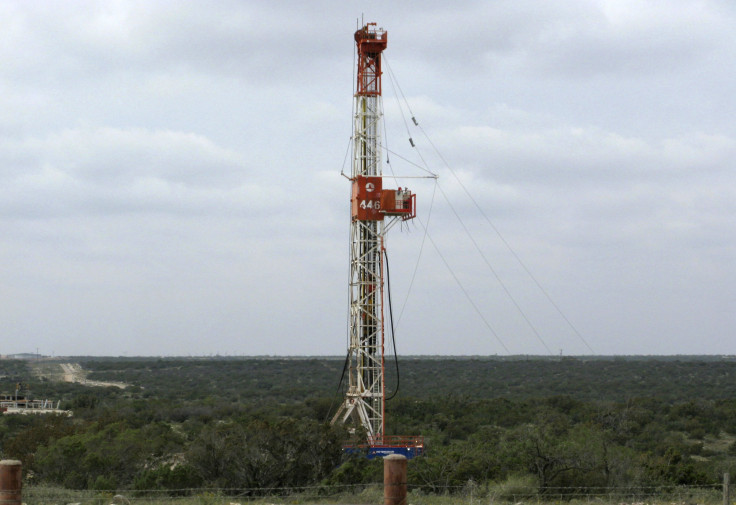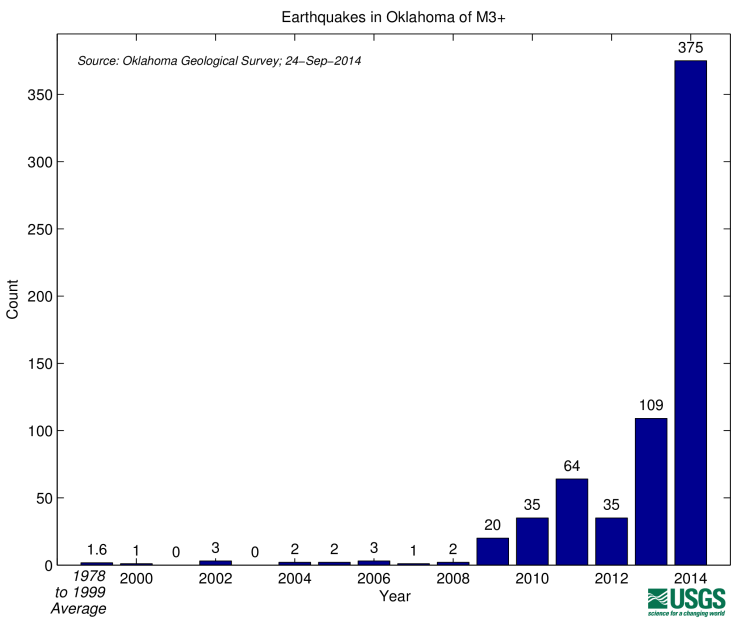Does Fracking Cause Earthquakes? Oklahoma Energy Group Says Federal Stance Linking Seismic Activity To Hydraulic Fracturing Isn’t Based On Science

Two days after the U.S. Geological Survey (USGA) said there is no doubt earthquakes can be caused by fluid injection wells associated with oil and gas extraction, including hydraulic fracturing, Oklahoma oil and natural gas extractors say the science is still out.
“I don’t think it's particularly helpful because basically it says, ‘We’ve come to a conclusion, but we don’t have the science to back it up,’” Kim Hatfield, a representative of the Oklahoma Independent Petroleum Association, told KFOR-TV, Oklahoma City, Saturday. “Oklahoma has been very geologically active over time, and that’s one of the reasons we have so many oil and gas traps.”

Fracking -- the process of blasting a mixture of chemicals, sand and wastewater into horizontal drilling wells to release gas and oil locked in deep underground pockets -- has been the subject of intense scrutiny amid the U.S. oil and gas boom of recent years, including whether they’re linked to earthquakes in areas of the country that rarely experience them. Fracking critics say the process causes earthquakes, but defenders of the extraction process say there’s exceeding low risk from the process.
The USGA on Thursday called for more “transparency in data collection to enable strategies for mitigating the effects of human-induced earthquakes caused by wastewater injection associated with oil and gas production in the United States.” Fluid injection wells take wastewater from hydraulic fracturing and other oil and gas activities and inject them deep into the earth.
The USGA was responding to a paper published in the journal Science that found a marked increase in seismic activity since 2001 in parts of the U.S. “long considered geologically stable with little or no detected seismicity.”
“To a large extent, the increasing rate of earthquakes in the mid-continent is due to fluid-injection activities used in modern energy production,” the Science paper said, adding that hydraulic fracturing activities, “induces only micro-earthquakes (too small to be felt), although there have been a few felt earthquakes.” The problem of seismic activity seems to be more of an issue with the wastewater byproduct produced in oil and gas extraction. As fracking has taken off, the number of these injections well, known as Class II injection wells, has increased to more than 170,000, according to the U.S. Environmental Protection Agency.
The USGA responded to the paper by calling for more coordination to tackle “human-induced earthquakes.”
“Increased seismicity is due to fluid injection associated with new technologies that enable the extraction of oil and gas from previously unproductive reservoirs,” it added.
Last month the Kansas Geological Survey said the process is likely to blame for the state’s recent spat of seismic activity. In November 2011,Oklahoma was struck with an unusual 5.6 magnitude quake that was felt as far away as Wisconsin.
Note: This story was corrected to distinguish between hydraulic-fracturing wells and fluid-injection wells, which inject wastewater byproduct of oil and gas production (including fracking) deep into the earth.
© Copyright IBTimes 2024. All rights reserved.






















